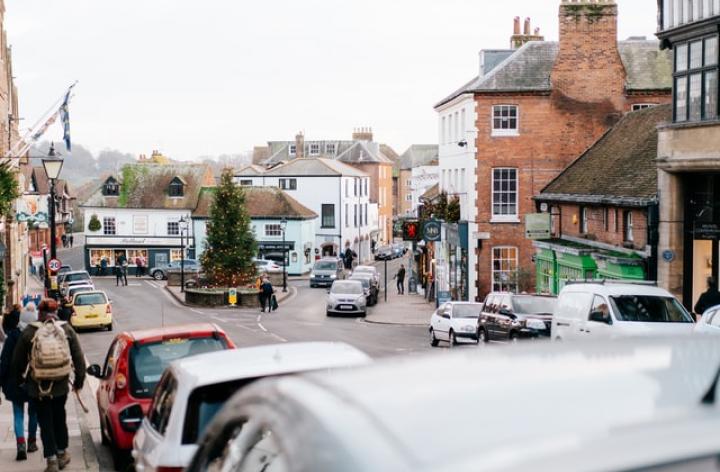
I think the Access to Cash Action Group (CAG) could get a double win following the announcement made on 15 December 2021. CAG has been instrumental in facilitating collaboration between major retail banks, Age UK, Toynbee Hall and the Federation of Small Business. The ultimate objective is to ensure widespread cash and banking access for communities where services are limited.

Conundrum
I can see the issues from both sides: it is terrible for a town to lose their banking facilities, but it is also pretty hard to be the last bank in town. The major retail banks are competing against digital challenger banks like Starling and Monzo who do not have the financial burden of a branch network. All banks are investing more in digital innovation to meet customer demand. How can you do that effectively (and keep shareholders happy) when you also have the overheads of a branch network to support?
A lot of consumers will feel little sympathy for the banks. It doesn't feel like the long years of loyalty count for anything when the banks leave you high and dry. It can also feel like people in boardrooms are far removed from their customers. When the Royal Bank of Scotland proposed closing their branch on the Isle of Barra in 2017, customers where told their nearest branch was just under 25 miles away on the Isle of South Uist. That is all very well as the crow flies, but you need to catch a ferry to get there. To be told, by people far away, that it would be only be two hours all in all was quite frustrating. Especially to those without easy access to transport. One journalist tested this using public transport, and found that the timetables meant it would actually take closer to six hours, never mind when ferry sailings get cancelled due to bad weather or maintenance and capacity issues put the whole ferry network into disarray. The public furore meant that the branch on the Isle of Barra remains, but the services are limited and mobile branches are now commonly seen in the Western Isles.
Solution
What would happen if the 2017 announcement was made today? Well "collaboration" would kick in, and it wouldn't just be the latest buzzword. Banks have voluntarily signed an agreement which means that when a community faces closure of a core cash service (like a bank branch or ATM), the community will have its needs independently assessed by LINK. It will then be on LINK to determine whether a new solution should be provided to meet the cash needs of that community. LINK has already been busy making assessments of closures that have happened in the past year. The result being that the follow new services will be launched in 2022:
- free-to-use ATMs in 11 towns
- Post Office improvements, including dedicated cash services in up to 30 branches
- shared banking hubs in five towns – building on the experience of the existing hubs piloted in four towns already
There will be further announcements in early 2022, but we should expect to see measures such as cashback without purchase, mobile branches and pop-up services being provided more widely.
Competition
The shared banking hubs will mean banks working jointly to offer cash services on high streets. Customers will be able to speak to their own bank. There could be services from different banks offered on different days of the week. From a legal perspective, the shared banking hubs are very interesting. Banks have had to tread carefully over competition law concerns. Initially there was a lot of trepidation about even raising these ideas. Banks have actively wanted to look at solutions with others in the market despite how it may appear to consumers. I'm glad to see that proper innovation and collaboration will come to the fore to serve consumers and reduce the potential for financial detriment or exclusion.
No one left behind
The use of cash has been dropping for some time. The Covid-19 pandemic sped this up dramatically: a £100 contactless limit was unthinkable not that long ago. Whilst the current use of cash is down 35% on pre-pandemic levels, there is still a place for it (and more importantly the people who use it) in our society. Accessibility, equality and customer vulnerability should all be actively monitored and acted on in FCA and PRA regulated firms. Finance is essential for participation in daily life. Whilst financial services providers may have financial conundrums, they don't get to relegate certain cohorts of society to the side lines. The UK government see this as a key priority, they have said they will legislate to protect access to cash. John Glen, the economic secretary to the Treasury, has reiterated this in the press releases on CAG's latest measures.
We aren't in a post pandemic world yet but most people and organisations are thinking about the "new normal". Shared banking hubs could offer a lifeline to communities and also be part of the solution for reviving the High Street. They have the potential to be a saviour in more ways than one!
Tip - Paper money won't be consigned to history just yet, but the £1 note could be the first to go. If you want to get your hands on one, there is a healthy circulation in the Western Isles.
The content of this webpage is for information only and is not intended to be construed as legal advice and should not be treated as a substitute for specific advice. Morton Fraser LLP accepts no responsibility for the content of any third party website to which this webpage refers. Morton Fraser LLP is authorised and regulated by the Financial Conduct Authority.









